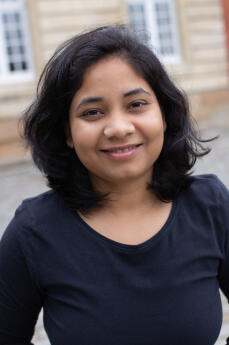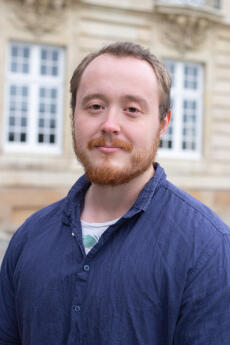Head of Project
PhD Candidate Graduate School Practices of Literature
katharina.scheerer@uni-muenster.de

In her dissertation project, Katharina Scheerer examines the beginnings of German science fiction literature around 1900. These texts already deal with the relationship between humans and the environment in general and humans and plants in particular: Alfred Döblin's Berge Meere und Giganten (1924) or in Kurd Laßwitz's Die entflohene Blume (1910), for example. Katharina developed the exhibition project from the observation that various doctoral students at the GSPoL were dealing with the science fiction genre in their projects.










